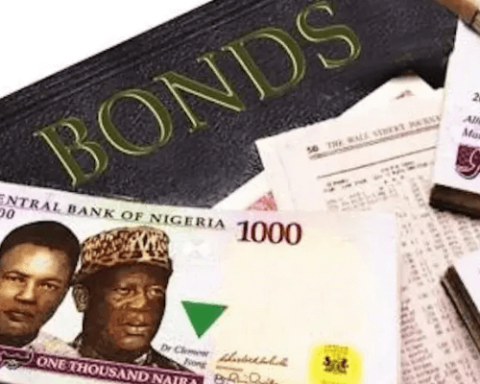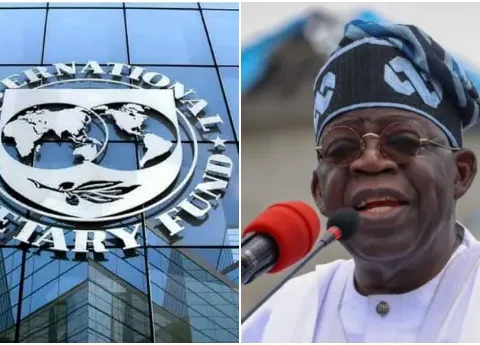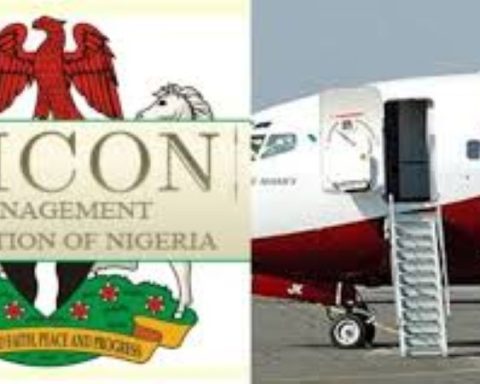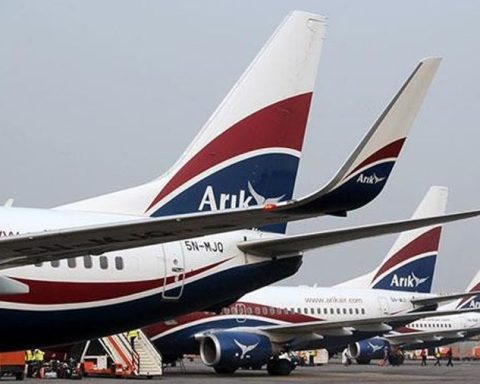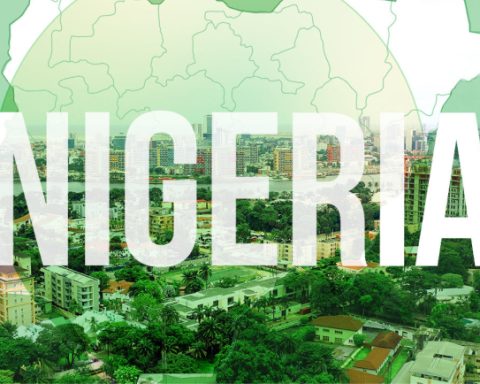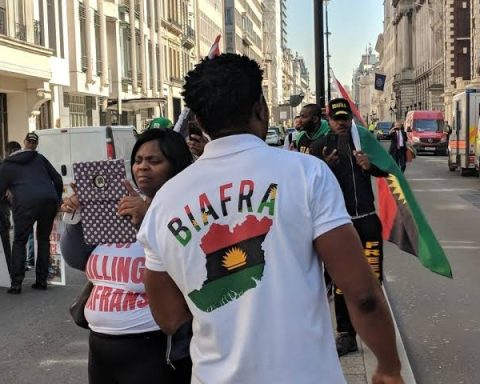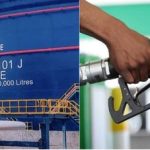Nigeria’s promissory notes debt fell by 15.6 per cent quarter on quarter between December 2024 and March 2025, dropping from N1.542 trillion to N1.301 trillion, according to the Debt Management Office (DMO).
This decline also represents a 17.1 per cent year on year reduction, attributed by the government to efforts in settling verified obligations owed to contractors across Ministries, Departments and Agencies.
Join our WhatsApp ChannelIs this drop a genuine sign of improved fiscal discipline and debt management, or does it mask deeper issues such as the deferral or abandonment of critical capital projects?
While the government emphasises meticulous payment only for completed contracts, concerns linger over whether the reduction reflects real cash outflows or accounting adjustments that could undermine future infrastructure development.
In parallel with this development, while the government rightly celebrates the milestone of clearing the IMF loan principal and reducing promissory notes debt, these achievements must be contextualised within Nigeria’s broader and growing debt challenges.
Promissory notes are government issued instruments acknowledging debts owed for completed projects, state refunds or other domestic obligations. Unlike Nigeria’s external debts such as the IMF loan, they are internal commitments.
Nigeria’s debt began rising during military rule but surged under President Obasanjo due to domestic borrowing. It increased under President Jonathan and worsened significantly during President Buhari’s administration, with heavy external and domestic borrowing to fund deficits and infrastructure.
Under President Tinubu, the debt situation remains challenging, with total public debt surpassing ₦134 trillion by mid 2024, driven by naira depreciation, rising interest payments and continued reliance on borrowing. According to the latest data from the Debt Management Office, Nigeria’s total public debt has now risen to approximately ₦149.39 trillion.
Other liabilities: To further assess the government’s overall debt management, it is important to consider other liabilities. Nigeria secured a 3.4 billion dollar loan from the IMF in April 2020 under the Rapid Financing Instrument to cushion COVID-19 shocks. Under President Tinubu, the country completed repayment of the principal by 30 April 2025, reducing the balance from Special Drawing Rights (SDR) 2.45 billion to zero, according to IMF Resident Representative Dr Christian Ebeke.
READ ALSO: Concerns As Naira Depreciation Pushes Nigeria’s Debt To N149.39trn
However, while the principal is cleared, Nigeria must still service interest and charges totalling about SDR 22.3 million or 30 million dollars in 2025, with annual payments continuing until 2029.
With this in view, it becomes difficult to reconcile the government’s claim of having settled a substantial portion of promissory notes. The question remains, how was the debt reduction achieved?
The Accountant General’s office claims only fully verified contracts are paid, implying stricter spending. Governments often cut debt through spending cuts, tax hikes or debt restructuring, but such measures can harm the economy. With limited transparency, it is unclear if Nigeria’s debt drop is from real payments or accounting shifts. Another concern is that reducing promissory notes debt may be stalling vital infrastructure, worsening public services like education and health, with little public record of abandoned projects.
Most Nigeria projects remain stalled or abandoned
A 2025 report by BudgIT’s Tracka platform highlights that 129 projects were abandoned despite contractors receiving payments totalling ₦3.9 billion. Among these were payments of ₦401 million for the Welcome Nasarawa Farewell road in Nasarawa State and ₦153 million for landscaping the Onicha Uku Town Hall in Delta State, with no work commenced. The report underscores systemic issues of poor oversight, corruption and inconsistent funding that leave contractors unpaid or projects incomplete. Since 2014, Tracka has monitored over 17,811 projects nationwide, revealing a persistent pattern of abandoned and poorly executed public works.
READ ALSO: National Assembly Inserted 11,122 Projects Worth N6.93trn In 2025 Budget – BudgIT
The Chartered Institute of Project Managers of Nigeria estimates the total value of abandoned projects nationwide at ₦17 trillion, a staggering figure that underscores the scale of wasted public resources.
Beyond ongoing delays on major federal road projects like the Sokoto to Badagry Road, the Lagos to Calabar Coastal Highway and the long overdue Lagos to Ibadan Expressway, the housing sector reveals even more glaring failures.
During former President Goodluck Jonathan’s administration, the Federal Mortgage Bank of Nigeria paid Good Earth Power Nigeria Limited over 65 million dollars to construct 962 residential units in Abuja’s Kaba district. Yet, according to court cases and investigations by the Independent Corrupt Practices and Other Related Offences Commission, not a single building stands on the site. This scandal epitomises how billions meant for critical housing projects have vanished without delivering any tangible benefits to Nigerians.
In the power sector, flagship projects such as the Mambilla Hydropower Project and the Zungeru Hydropower Plant remain incomplete despite years of investment, while numerous smaller dams and transmission initiatives have stalled, worsening Nigeria’s chronic electricity shortages. Education infrastructure similarly suffers from abandoned school buildings and health centres, with contractors often unpaid or sidelined despite partial payments, fuelling strikes among teachers and health workers.
The aforementioned has revealed that the said reduction might be just a mere talk to raise public confidence in the current administration.
External Pressures: IMF, Credit Ratings and Political Optics
Nigeria’s fiscal management is under intense scrutiny from external actors. The IMF has repeatedly warned that Nigeria’s fiscal deficit could reach 4.7 per cent of GDP in 2025, driven by lower oil prices, production shortfalls and execution challenges in capital expenditure.
Aside the issues at stake, it is even more worrisome how the IMF insinuated that one of the reasons is lower oil prices, even though high cost of fuel is one of Nigerians’ problems. This shows the intense pressure coming from them because they are just concerned about their money. This creates incentives to highlight debt reductions, even if achieved through accounting manoeuvres or temporary fixes, while downplaying the underlying fiscal pressures.
Image projected while masses suffer:
Nigeria’s 2025 tax reforms, spearheaded by the Presidential Committee on Fiscal Policy and Tax Reforms chaired by Taiwo Oyedele, promise a more efficient and equitable tax system aimed at boosting revenue and widening the tax net. Yet, beneath these reforms lies a harsh reality: ordinary Nigerians bear an increasingly heavy tax burden while the government’s spending priorities raise serious questions about fiscal justice.
As Oyedele’s committee report highlights, the tax system suffers from inefficiencies, corruption and poor service delivery. So, despite paying taxes that fund government coffers, many citizens see little return in improved infrastructure, education or healthcare. Instead, public funds are often diverted to extravagant expenditures, such as the purchase of private jets and maintenance of lavish government fleets, even as lecturers, health workers and primary school teachers strike repeatedly over unpaid salaries and the failure to implement the ₦70,000 minimum wage.
READ ALSO: Nigeria’s Debt May Surpass N200trn Before 2027 – Expert
Ultimately, the danger is a development slowdown hidden behind fiscal window dressing. Without genuine reform and sustained investment, Nigeria risks entrenching economic stagnation and social discontent despite headline debt improvements.
Call to Action
Nigeria’s recent reduction in promissory notes debt offers a glimmer of fiscal progress but must be viewed with cautious scrutiny. True debt transparency is essential to ensure the public understands how these reductions were achieved and at what cost. The government must balance the imperative of debt control with the urgent need to deliver essential capital projects that drive national development.
Independent audit and rigorous legislative oversight to verify the authenticity and sustainability of the reported debt decline is paramount.
Fiscal health cannot and must not come at the expense of Nigeria’s long term growth and the well being of its people. Only through transparent, accountable and balanced fiscal management can Nigeria secure a prosperous future.
Also important is that true fiscal discipline requires transparent communication about all debt components and a balanced approach that avoids sacrificing critical capital projects for short term accounting gains. Without such clarity, headline reductions risk masking the complex realities of Nigeria’s debt landscape and the potential costs to long term economic growth and development.
Dr Mbamalu, a Jefferson Journalism Fellow, member of the Nigeria Guild of Editors and Media Consultant is the publisher of Prime Business Africa
Dr. Marcel Mbamalu is a distinguished communication scholar, journalist, and entrepreneur with three decades of experience in the media industry. He holds a Ph.D. in Mass Communication from the University of Nigeria, Nsukka, and serves as the publisher of Prime Business Africa, a renowned multimedia news platform catering to Nigeria and Africa's socio-economic needs.
Dr. Mbamalu's journalism career spans over two decades, during which he honed his skills at The Guardian Newspaper, rising to the position of senior editor. Notably, between 2018 and 2023, he collaborated with the World Health Organization (WHO) in Northeast Nigeria, training senior journalists on conflict reporting and health journalism.
Dr. Mbamalu's expertise has earned him international recognition. He was the sole African representative at the 2023 Jefferson Fellowship program, participating in a study tour of the United States and Asia (Japan and Hong Kong) on inclusion, income gaps, and migration issues.
In 2020, he was part of a global media team that covered the United States presidential election.
Dr. Mbamalu has attended prestigious media trainings, including the Bloomberg Financial Journalism Training and the Reuters/AfDB Training on "Effective Coverage of Infrastructural Development in Africa."
As a columnist for The Punch Newspaper, with insightful articles published in other prominent Nigerian dailies, including ThisDay, Leadership, The Sun, and The Guardian, Dr. Mbamalu regularly provides in-depth analysis on socio-political and economic issues.




